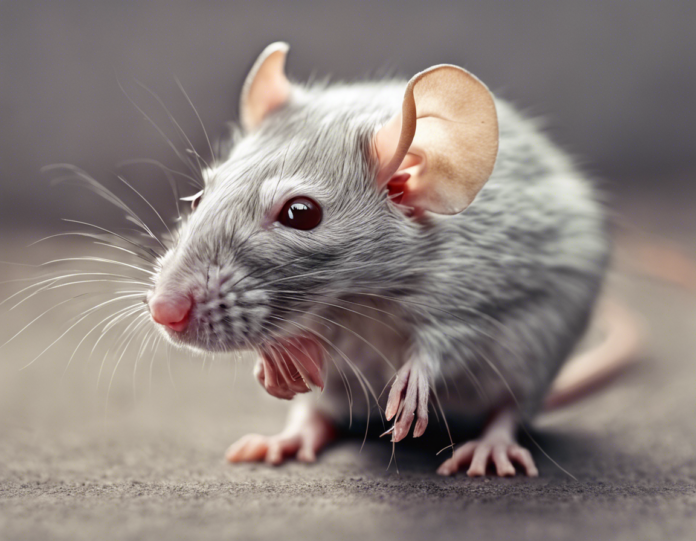When it comes to rat infestations in your home or business, it’s crucial to act swiftly to prevent further damage and potential health risks. One of the key indicators of a rat presence is often their distinctive smell. Rats emit a musky odor that can be quite pungent, especially in areas where they nest or travel frequently. Understanding how to detect a rat by smell can help you identify and address the issue effectively.
In this comprehensive guide, we will delve into the various aspects of rat smell detection, from what causes it to how to differentiate it from other odors. We will also provide practical tips on identifying and dealing with rat infestations based on smell cues.
Understanding the Source of Rat Odor
Rats have scent glands that they use for communication and marking their territories. These glands produce a distinctive musky odor that is often described as musty or urine-like. The smell is a combination of various compounds found in rat urine, feces, and their bodies.
Differentiating Rat Smell from Other Odors
Before concluding that the smell in your home or business is due to rats, it’s essential to rule out other possible sources. Some common smells that can be mistaken for rat smell include:
-
Mold and Mildew: Damp and moldy areas can produce a musty smell that may resemble rat odor. Check for any signs of water damage or mold growth.
-
Dead Animals: The smell of a decaying animal can be similar to that of rats. Look for any carcasses or rodent remains that may be causing the odor.
-
Pets: Pet urine and feces can also emit strong odors that might be confused with rat smell. Ensure your pets are not the source of the odor.
By ruling out these possibilities, you can be more confident in identifying a rat infestation based on the specific odor they emit.
Detecting Rat Smell in Different Areas
Rats are attracted to various environments where they can find food, water, and shelter. Here are some common areas where you may detect rat smell:
1. Attics and Crawl Spaces
Rats are known to inhabit attics and crawl spaces where they can build nests and hide from predators. The odor in these areas is often concentrated due to poor ventilation.
2. Basements and Garages
These areas provide rats with easy access to shelter and potential food sources. Check for smell emanating from corners, storage boxes, or behind objects.
3. Kitchen and Pantry
Rats are attracted to kitchens and pantries where they can scavenge for food. Look for smell near food storage areas, behind appliances, and inside cabinets.
Tips for Identifying and Addressing Rat Infestations
Once you have pinpointed the source of rat smell, it’s crucial to take action to address the infestation effectively. Here are some tips to help you deal with rat problems based on smell detection:
-
Inspect Your Property: Conduct a thorough inspection of your property to identify possible entry points and nesting sites.
-
Set Traps: Use snap traps or live traps to capture rats and reduce the population in your property.
-
Seal Entry Points: Close off any gaps or openings that rats may be using to enter your home or business.
-
Clean and Sanitize: Remove any sources of food or water that may attract rats, and sanitize affected areas to eliminate odor.
By following these tips and addressing the rat infestation promptly, you can prevent further damage and protect your property from future invasions.
Frequently Asked Questions (FAQs)
1. How can I distinguish rat smell from other odors in my home?
– Rat smell is often musky and musty, with a urine-like odor. It may be more concentrated in areas where rats frequent, such as attics or basements.
2. Can rat smell linger even after the rats have been removed?
– Yes, rat odor can persist even after the rats have been eliminated. It’s essential to clean and sanitize affected areas to get rid of the smell completely.
3. Is it safe to use chemical odor eliminators to get rid of rat smell?
– It’s recommended to use non-toxic methods to eliminate rat smell, such as vinegar or baking soda, to avoid exposing yourself to harmful chemicals.
4. How do I prevent rats from coming back after addressing the odor issue?
– Seal off entry points, remove potential food sources, and keep your property clean and clutter-free to deter rats from returning.
5. Should I seek professional help to deal with a rat infestation based on smell detection?
– If you suspect a large infestation or are unable to locate the source of the odor, it’s advisable to seek the assistance of a pest control professional to address the issue effectively.
In conclusion, being able to detect a rat infestation by smell is a valuable skill that can help you take proactive measures to address the problem. By understanding the distinct odor that rats emit, ruling out other possible odors, and following practical tips for identification and eradication, you can effectively deal with rat infestations in your property. Remember that timely action is key to preventing further damage and ensuring a pest-free environment.


Recent comments